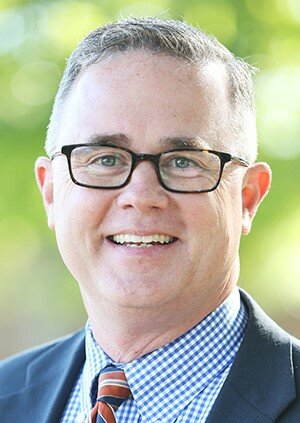OPINION: Men are called to work
By Todd E. Brady
Columnist
The first cassette tape (Remember those?) I owned and played in my stereo and Walkman (Remember those?) was called Men at Work by the Australian rock band Men at Work. As a teenager, I listened to songs like “Who Can It Be Now?,” “Down Under,” and “Be Good Johnny” with the name of that band top of mind and with the words “men” and “work” associated together.
Looking back now, I realize that was my introduction to the idea that men work. Working is what a man does. The idea of men working was modeled as I looked around and saw men working. Later from reading the Bible, I realized that God created man to work. In the initial pages of Scripture, we find the first man who was put by God in the garden of Eden “to work it and keep it.” (Genesis 2:15)
Some Christians misrepresent work as a curse of the Fall. Let us remember, though, that the command to work was given before the Fall. As a result of the Fall, work became harder. But work is not a curse. Work is a calling.
This summer I smile at the fact that my three oldest sons are working. (The other two are not old enough.) One is spending the summer working as an intern in Washington D.C., and the other two have jobs here in Jackson. Because of work, they are planning ahead, not staying up too late, setting out their work clothes in advance, getting out of bed early in the morning, showing up at work, doing their jobs, coming home, and doing it all over again. Just this week, one son left for work at 5:30 a.m. When I drive over to get my guilty pleasure (Peach Milkshake), I love it when one of my sons brings it to my car and says “My pleasure” when I thank him. (I think he says that to all customers.)
According to the 2019 Current Population Survey of the US Bureau of Labor Statistics, in 1969 the labor force participation rate of men ages 25-53 was 96 percent. In 2015, the rate had dropped to under 89 percent.
In his new book Manhood: The Masculine Virtues America Needs, Senator Josh Hawley (R-MO) says there is a crises or manhood in our culture. In and throughout the book, Hawley provides biblical examples of good and strong manhood.
One critic called Hawley a “dreary sort of Christian” since he talks so much about the Bible. In a day when discussions of manhood are often seen by some as oppressive or called “toxic masculinity,” I find Hawley’s call for manhood anything but dreary. It is good, helpful, and hopeful. In a confused society that often says manhood is evil and that womanhood doesn’t even exist, Hawley’s call is needed and clear.
Related to manhood, Hawley might seem to be a voice crying in the wilderness. Just a couple years ago, the Smithsonian Institute stated that concepts like “self-reliance,” “the nuclear family,” “the scientific method,” “the Judeo-Christian Tradition,” “hard work,” “rigid time schedules” and “holidays” were parts of a less-than-desirable subset of culture. At my house, I’m seeking to raise boys who swim against the current and value self-reliance, the nuclear family, the scientific method, the Judeo-Christian Tradition, hard work, rigid time schedules, and holidays.
Russian sociologist Pitirim Sorokin (1889-1968) who served as a professor at Harvard said that the great civilizational challenge after reproduction is the transition from boyhood to manhood. From looking at Labor Bureau statistics where grown men act like small video-playing boys and lazy men shirk their responsibilities and do not take care of others, it appears that we are not meeting that civilizational challenge very well.
Men not working is not simply a current issue. It’s been a problem in the past. Obviously, men in the church at Thessalonica were lazy, avoiding responsibility, and not working. Paul told others to stay away from those who were idle and that they should imitate him who was not idle when among them, who paid for his own bread, and who toiled and labored night and day. He called out those who were busy bodies instead of being busy at work. The crisis in Thessalonica was so severe that he commanded them, “if anyone is not willing to work, let him not eat.” (2 Thessalonians 3:10)
This summer, when I talk to my oldest son on the phone and when we sit down for supper each night with the other boys, one of the best questions I ask is “How was work?” That’s the way it’s supposed to be.
Todd E. Brady is vice president for university ministries at Union University. Write to him at 1050 Union University Drive, Jackson TN 38305.






